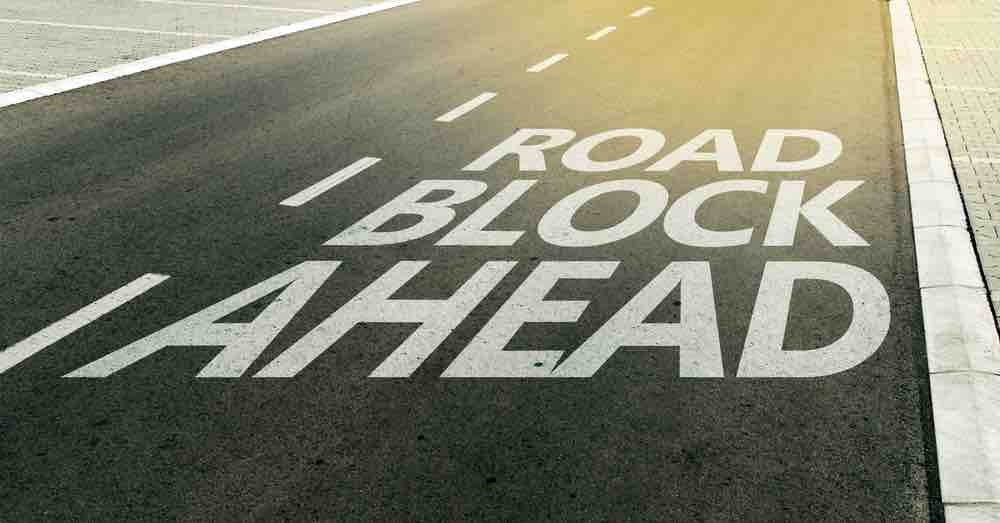Are life coaches allowed to talk about the past with clients?
The past often comes up in coaching sessions. This is where many life coaches tense up a bit, wondering if they are allowed to go there. Let’s tackle the issue of dealing with the past in life coaching.
Life coaches help you create a better future. Therapists deal with the past.
That’s the standard theory and it needs a little attention.
There is a critical difference between clinical mental health counseling and life coaching but it has less to do with the past vs. future than you might think. In clinical counseling, the operative word is clinical, meaning the presence of a medical diagnosis. If you’re seeking to be diagnosed or treated for a mental health disorder, find a psychiatrist or counselor. That’s what they do (with exceptions), especially if they are receiving third-party reimbursement.
Diagnose and treat clinical disorders. That’s one thing life coaches cannot legally do (I am a former therapist and present-day life coach instructor. I am not an attorney, so do not consider anything in this post to be legal counsel). Of course, it is not illegal to converse with anyone, in just about any context, about the past. Treating medical issues is a separate matter. We leave that to state-licensed professionals who operate under strict regulations.
What makes a setting clinical?
The presence of a clinician (counselor) and a medical diagnosis, like Major Depressive Disorder or Posttraumatic Stress Disorder. There are typically insurance billing codes that accompany each diagnosis and clinical standards that counselors must follow. Diagnosing and treating mental health disorders is serious business. Life coaches are not licensed to engage in such business.
But, talking about the past? Is this a reasonable distinction between coaches and therapists? To understand how life coaches should approach the past with clients, let’s identify two scenarios under which the past commonly enters the scene.
Scenario #1: Past associations in general. The role the past plays in communication and behavior. This refers to the necessity of drawing upon past experience in order to convey an idea or take action.
Scenario #2: When the past comes up, specifically. Clients often mention specific past events in the normal course of coaching conversations.
We’ll look at each scenario below.

1. Past Associations: Impossible to Avoid
Referencing the past occurs in every single life coaching session ever. Without general past associations, it would be impossible to communicate or function at all.
The past permeates everything. It lives inside us as an absolute necessity for survival. We could not function, moment to moment, without continually drawing upon lessons learned. I would not know how to form these words unless I had learned to do so in the past. I could not stand up, open the door, and walk out of this room without referencing my past.
Using language, standing, walking, and opening doors are learned behaviors. Every time I do them, my mind and body must remember how. The memories are so deep and close that, of course, I can do all of the above without consciously recalling how I learned to do it. Yet, without those memories; without that experience from the past, I’d just be sitting here like a blob, unable to speak or even think in words.
You get the idea. The past is ever-present, informing our choices and guiding our behavior. Even future goals and expectations are based on beliefs and desires that, you guessed it, originate in the past. There is simply no escaping our history!
The past is never dead. It’s not even past.
Examinedexistence.com
—William Faulkner
Therefore, the past is present in every life coaching session, whether you recognize it or not.
2. How the Past Comes Up in Life Coaching Sessions
Life coaching clients often bring up specific past events or tendencies that hinder their coaching goals. These common examples are specific references to past experiences or trends.
Ever since I failed my last calculus test, I can’t concentrate when I am studying.
I grew up in a very controlling environment. My father made all the big decisions for me. Now that I’m on my own, it’s hard to know what to do. I need to learn to make decisions for myself.
My mother always said I wouldn’t amount to much. That’s what I hear in my head when thinking about what I want to accomplish.
Clients mention these kinds of things all the time, especially when exploring what stops them from moving forward. What is a life coach to do?

It’s important to understand the typical situation in which the references are most often made. When helping a client pursue a goal, life coaches often ask what stops the client from achieving it. This often raises imagery, feelings, and voices from the past that cloud the client’s mindset.
In such situations, coaches are not interested in the past as much as what prevents the client from creating a different future. Yet, here we sit, often in the middle of a long-forgotten memory. Should we steer clear of it by redirecting the client, supposedly avoiding the past and ignoring the obstacle? That would render the coaching process far less effective than if we took measures to clear the obstacle.
Imagine we do redirect by helping the client harness the inner resources necessary to overcome the obstacle. Perhaps an infusion of positive feelings will bring about the desired transformation. This is a common and often effective life coaching approach. Draw upon your strength!
However, drawing upon inner resources requires a dip into the past as well. Remember, past associations are indeed impossible to avoid. The most effective way to recapture a positive emotion is to remember times when you experienced it. If you’d like to feel more confident, access confident memories so you can feel now what you felt at the time. Are life coaches allowed to delve into positive memories from the past? Or is it just the negative past we’re supposed to avoid? Either way, the coach is in an impossible situation, trying to avoid something (the past) that inevitably pops up.
The Elusive Obvious
All of this overlooks the fact that, in the above scenario, the client sits in the present with a self-limiting image in mind. The memory is showing up now, in the present, and serves as an obstacle now, in the present. Clearing it could handily be defined as dealing with a present-day limitation that compromises future goals. In other words, the past has made itself present, which is the only place the past can exist, if you really think about it.
The coach didn’t intentionally reference the past. The coach was inquiring as to what stops the client from moving forward at this moment. The obstacle happened to be a memory but it could just as easily been fear of the future, any external circumstance in life, or a present-day limiting belief (which would also be based on past experience).
The quote below adds to our point by drawing upon what historians have known for a long time. The below quote is taken from an opinion piece in the Guardian.
The past may be dead but history is alive, and it is constructed in the present.
Charlotte Lydia Riley, Historian, University of Southampton
When all is said and done, it is the present-day interpretation of the past that matters. In fact, that is all we have to go on, period.
Imagine three people who made the same mistake when working toward a goal:
Person #1 interprets the mistake as a sign that he should give up the entire pursuit.
Person #2 sees the mistake as a learning opportunity and moves ahead, wiser.
Person #3 feels like giving up but hires a life coach to transform his mindset to learn from past mistakes and move ahead with greater wisdom.
Shall life coaches turn clients away who want to learn from past mistakes and make wiser decisions in the future? I think not. However, we must consider off-limits any memories (and all other signs or symptoms) that contribute directly to a clinical diagnosis.
Life coaches unavoidably help clients clear historical obstacles that manifest in the present, as these are the very limitations that stand in the way of a brighter future. Incidentally, this turns out to be a pretty good filter for sorting out which elements of the past are important to address – the ones that come to mind when contemplating what stops you from moving ahead successfully.

Summary: Are life coaches allowed to deal with the past?
What’s our takeaway? It seems there are three:
1. Given that the past is unavoidable in every moment, it would be impossible to disallow life coaches (or anyone) to avoid past references.
2. Since many (if not all) obstacles to future progress are representations of the past that manifest in the present, it makes sense that life coaches (working in the present) would help clients overcome them.
3. When memories (or any references) are tied to a clinical diagnosis, life coaches must steer clear and defer to a counselor.
At last, we may have a workable answer. Are life coaches allowed to discuss the past? Yes, as long as they aren’t treating a clinical diagnosis. (Again, this is my opinion, not legal advice). Otherwise, the past is as unavoidable in a life coaching session as it is in everyday life.
What stops you from creating a bright future? The answer is likely a psychological obstacle, experienced and interpreted in the present moment, based on past experience.


